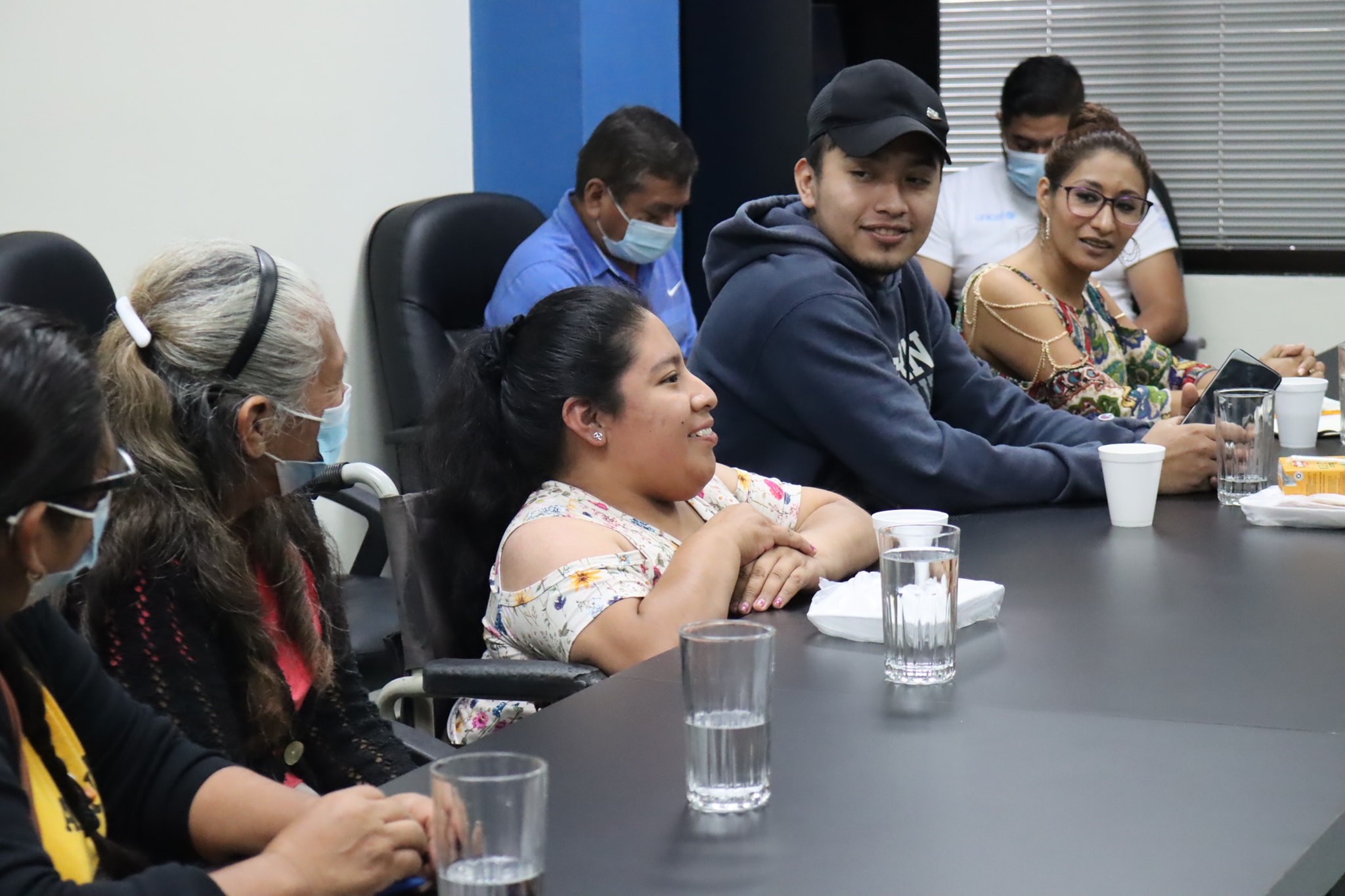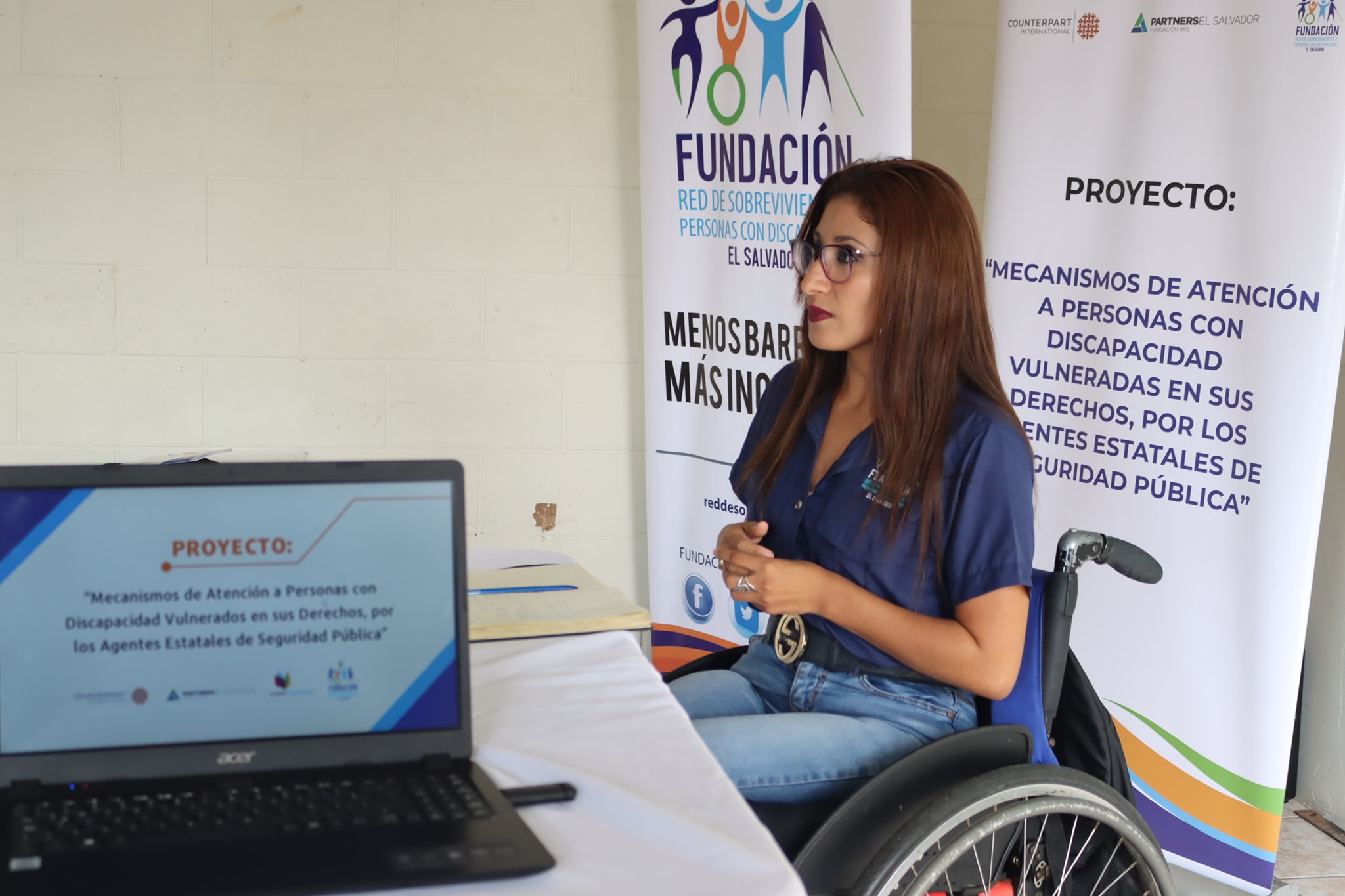Change often brings with it the fear of uncertainty; yet the willingness to face that fear holds within it the promise of transformation. The story of the Network of Survivors and People with Disabilities Foundation in El Salvador is a testament to what can happen when organizations embrace change. Counterpart International’s Rights and Dignity project, funded by USAID and implemented with local partners ConTextos and Partners El Salvador, provided the organization the capacity development it needed to become the leading Salvadoran human rights organization addressing issues of disability at the national and regional level.
The origins of the foundation lie in the aftermath of the Salvadoran armed conflict and as a product of another transformation. In 2008, after eight years of dedicated work, the parent organization of the Landmine Survivors Network ceased operations in the country. The local staff decided to continue their vital work under a new name and to broaden their scope beyond survivors of the armed conflict to people with a range of disabilities.

The Foundation was originally founded to serve landmine survivors, but after 2008 expanded their scope to people with a range of disabilities.
The newly formed organization continued the previous programs and expanded its scope. It maintained the Landmine Survivors Network programs in health, economic opportunity, and human rights and expanded its territorial coverage. As its impact grew, it reached a turning point. To become an effective advocacy organization regionally and nationally, it had to shift from an empirical approach to one founded on strategic planning.
Focus on organizational capacity development
In February 2019, the foundation signed an agreement with the Rights and Dignity project focused on organizational capacity development through the strengthening of six pillars crucial for their transition to a new operational model: leadership and strategic management, program and project management, financial administration and accounting, financial sustainability, human resources and materials, as well as communication and external relations.
This commitment involved a series of actions aimed at an internal strengthening and process efficiency. From streamlining financial and administrative procedures to enhancing project management, communications, identifying donors, and developing sustainability plans, these actions generated significant results. The organization succeeded in expanding its network of partner organizations by half and aligning its operational processes in accordance with both government regulations and international standards, thereby establishing a robust reputation of trust with the public.
Consequently, the organization joined three new international networks of institutional collaboration and increased its portfolio of donor partners by 50 percent, and participated in training from USAID with the goal of becoming a direct recipient of assistance under a localized funds approach.

Wendy Caishpal is the executive director of the Network of Survivors and People with Disabilities Foundation, which has become a leading Salvadoran human rights organization addressing issues of disability at the national and regional level.
For Wendy Caishpal, executive director of the Foundation, it was an honor to have the support of the Rights and Dignity project. “Today we can say that we are a strong organization, which has grown knowing how to face challenges and, above all, knowing how to understand the dynamics and importance of working as a team, with a long-term vision, and without having the fear of making mistakes,” Caishpal said.
With the decisive support of the Rights and Dignity project, the Network of Survivors and People with Disabilities Foundation equipped to expand its work into new regions with branch offices, as well as strengthening strategic inter-institutional agreements and alliances with civil society organizations, government entities, and donors.




